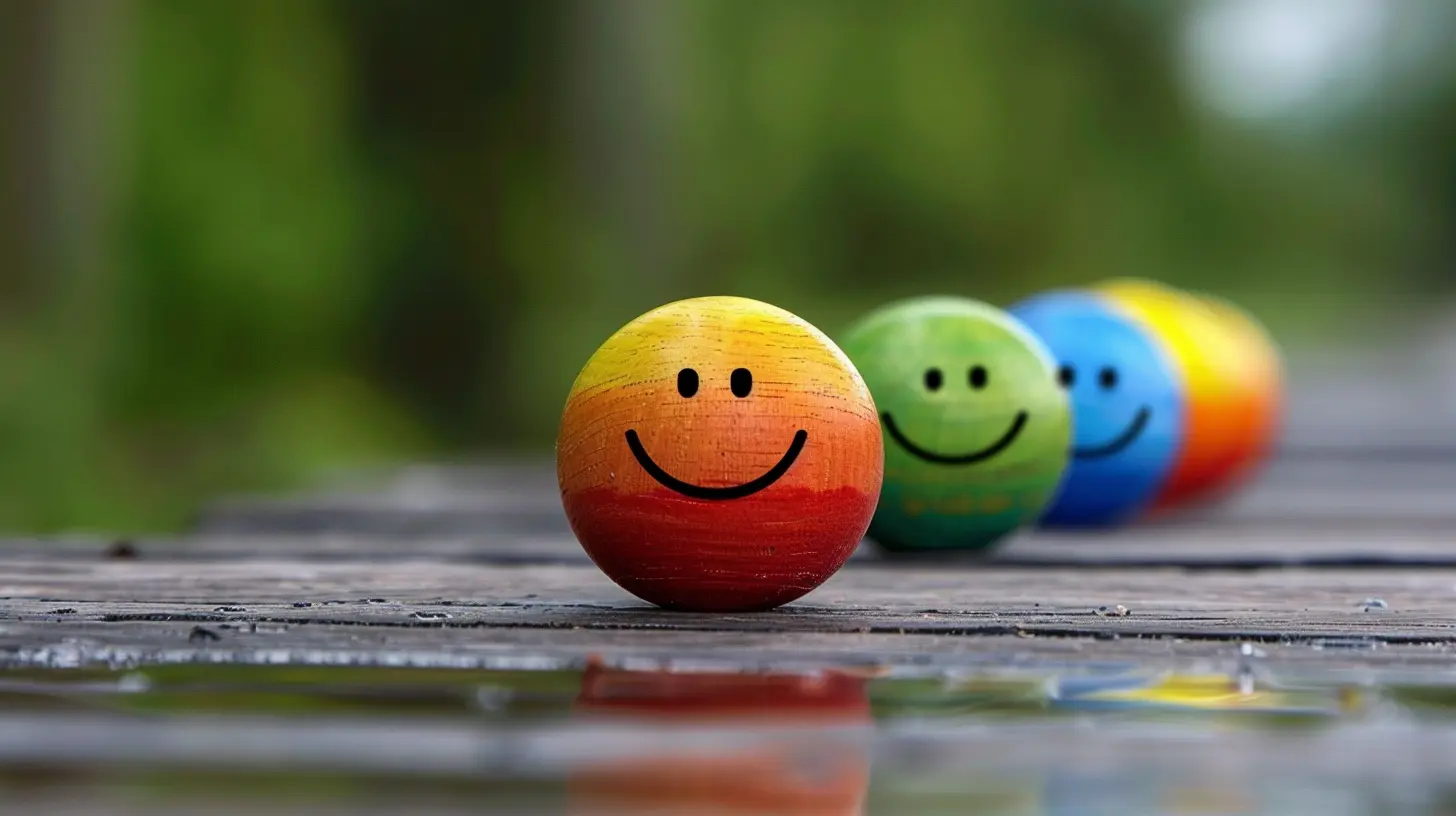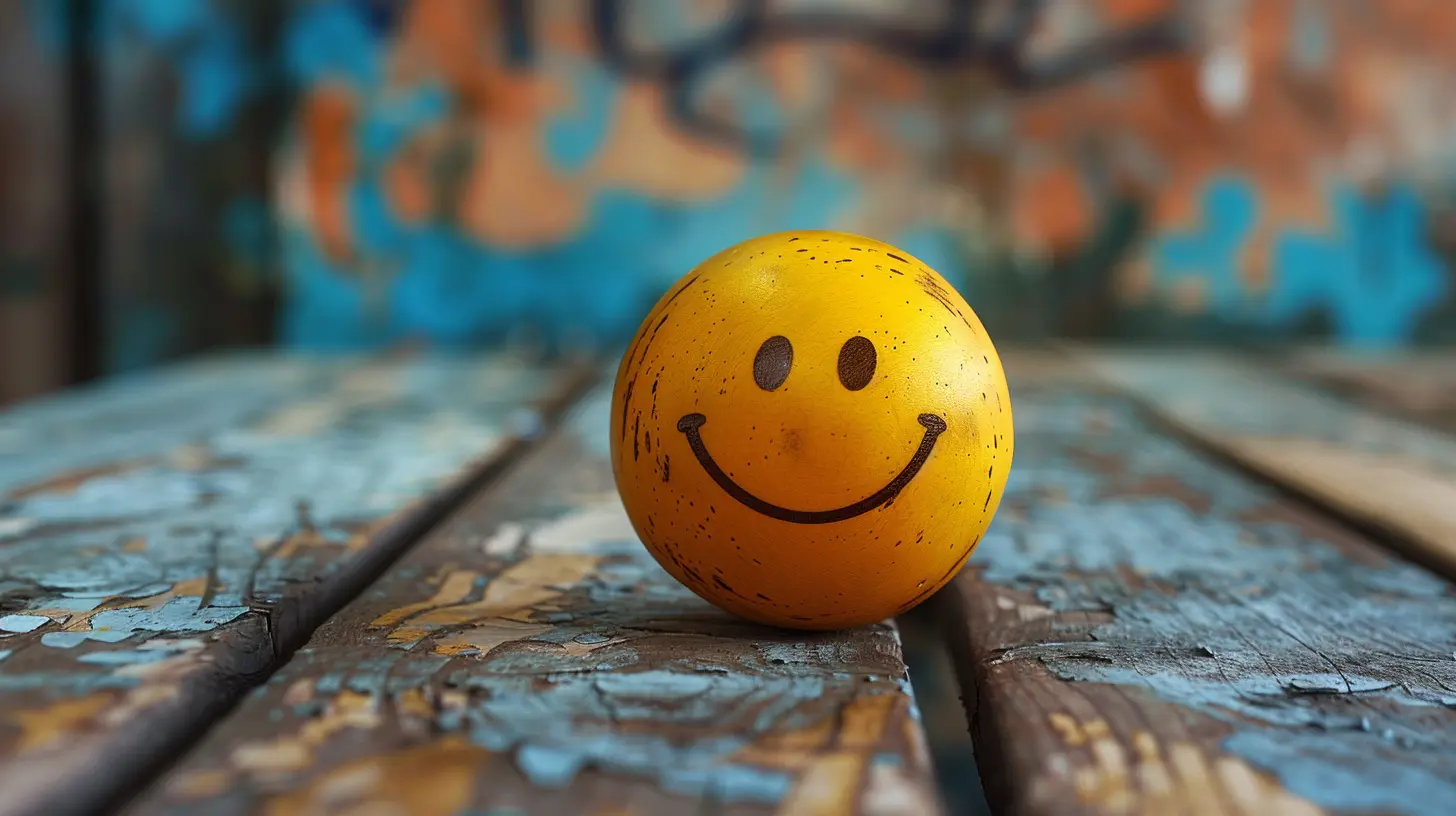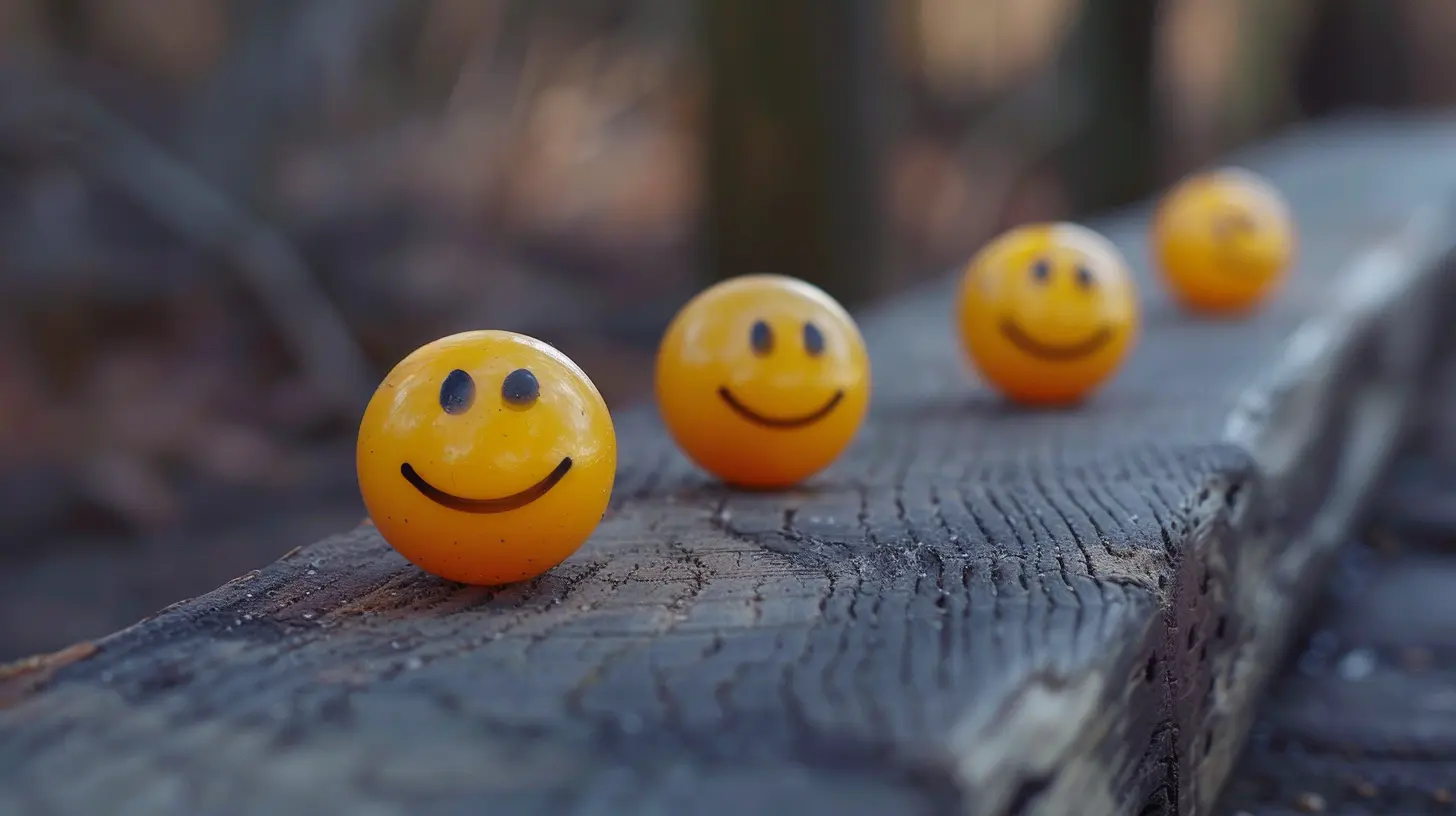The Role of Humor in Building Emotional Resilience
13 July 2025
Life has a funny way of throwing curveballs when we least expect them. One moment, everything seems fine, and the next, we’re drowning in stress, heartbreak, or disappointment. But what if I told you there’s a secret weapon we all have that can make these tough times a little easier? Enter humor—our built-in coping mechanism that has the power to lighten the darkest days and build emotional resilience.
We often underestimate just how powerful a good laugh can be. It’s not just about cracking jokes or watching comedy specials; humor is a mental and emotional tool that helps us navigate life’s rollercoaster with a little more ease. So, let’s dive into how laughter impacts our mental well-being and why humor is a crucial ingredient in building emotional resilience.

What Is Emotional Resilience?
Before we explore the role of humor, let’s get one thing straight—what exactly is emotional resilience?Emotional resilience is the ability to bounce back from adversity. It’s what keeps us moving forward after experiencing failure, loss, or stress. Think of it as mental toughness—the stronger it is, the better we handle life’s challenges.
Some people seem naturally resilient, while others struggle to cope with difficulties. The good news? Resilience isn’t just something you’re born with—it’s a skill you can develop. And humor plays a bigger role in this process than you might think.

The Science Behind Humor and Resilience
Ever notice how after a deep belly laugh, you feel lighter? That’s not just a coincidence. Laughter triggers a cascade of positive effects in both the brain and body.1. Laughter Reduces Stress Hormones
When we laugh, our body releases endorphins—those feel-good chemicals that help reduce stress and pain. At the same time, laughter lowers cortisol levels, which is the hormone responsible for stress. This balance allows us to see problems in a new light, making them feel less overwhelming.2. Promotes Cognitive Reframing
Cognitive reframing is the psychological trick of seeing a situation from a different perspective. Humor naturally helps us do this. When we laugh at a frustrating or painful situation, we subconsciously reframe it in a way that makes it less threatening. Suddenly, what seemed like the end of the world five minutes ago feels more like a minor inconvenience.3. Strengthens Social Connections
Humor is a social glue. Sharing a laugh with someone creates a bond, making it easier to seek support during tough times. Whether it’s a funny meme, an inside joke, or just recalling a hilarious memory, humor strengthens relationships, which are crucial for emotional resilience.4. Improves Problem-Solving Skills
A lighthearted approach to life often leads to better problem-solving. When we’re stuck in negativity, our thinking becomes rigid, and we struggle to find solutions. Humor loosens mental blocks, allowing for creative and flexible thinking, which is essential for overcoming challenges.
How Humor Helps Us Handle Life's Challenges
Let’s break it down further—how exactly can humor rescue us from the depths of stress and despair?1. Helps Us Cope with Failure
Failure is inevitable. But instead of letting it crush us, humor allows us to laugh at our mistakes, making them feel less catastrophic. Think about it—if you trip in public, it’s embarrassing. But if you can laugh at yourself, suddenly it’s just a funny moment rather than a disaster.2. Turns Anxiety into Playfulness
Anxiety thrives on seriousness. The more seriously we take our fears, the bigger they seem. Humor cuts through anxiety, transforming fearful thoughts into something less intimidating. Imagine picturing your worst-case scenario as a ridiculous comedy sketch—it makes things seem way less terrifying!3. Lightens Grief and Loss
Grief is heavy, but humor provides moments of relief. It doesn’t erase sadness, but it creates pockets of light in dark times. That’s why people often recall funny memories at funerals—it’s a way to celebrate life while coping with loss.4. Makes Daily Stress More Manageable
Ever had a long, stressful day, only to laugh at something ridiculous and instantly feel better? That’s humor in action. It interrupts negative thought patterns, providing a mental reset that helps us carry on.
How to Cultivate More Humor in Your Life
Now that we know humor is basically a superpower for emotional resilience, the question is: how do we bring more of it into our daily lives?1. Surround Yourself with Funny People
Laughter is contagious. Being around people who appreciate humor naturally boosts your own sense of humor. So, spend time with funny friends, follow comedians, or join social groups where people don’t take life too seriously.2. Find Humor in Everyday Situations
Start training your brain to notice the funny side of life. Whether it’s failing miserably at assembling IKEA furniture or realizing you've been talking to a muted Zoom call for 10 minutes, humor is everywhere if you look for it.3. Watch or Read Something Funny
Sometimes, you need an external push. Watching stand-up comedy, sitcoms, or reading humorous books can make laughter a daily habit.4. Don’t Take Yourself Too Seriously
The ability to laugh at yourself is a game-changer. No one is perfect, and trying to be serious all the time is exhausting. Embrace the absurdity of life—it makes everything a lot more fun.5. Use Humor as a Coping Mechanism
When facing a tough moment, try cracking a small joke about it (even if just to yourself). It helps shift your perspective and prevents you from feeling trapped in negativity.Final Thoughts
Humor is more than just entertainment—it’s a mental survival tool. Life will always have its ups and downs, but a good laugh acts as an emotional cushion. It helps us handle stress, cope with failure, and reframe difficult situations in a way that makes them bearable.So, as you go through life’s hurdles, don’t forget to find the funny side of things. It won’t make problems disappear, but it will make them easier to deal with—one laugh at a time.
all images in this post were generated using AI tools
Category:
ResilienceAuthor:

Paulina Sanders
Discussion
rate this article
1 comments
Selkie Garcia
This article brilliantly highlights how humor can serve as a powerful tool for emotional resilience. By fostering connection and reducing stress, laughter truly helps us navigate life's challenges.
August 8, 2025 at 3:38 PM

Paulina Sanders
Thank you! I'm glad you found the article insightful. Humor really is a vital force in building resilience and connecting us through tough times.


